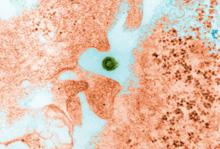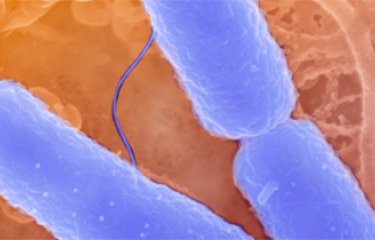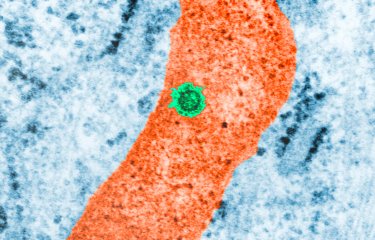Researchers from the Institut Pasteur and the CNRS have developed and demonstrated the validity of a new paediatric candidate vaccine against dengue. Their research, published in the journal PLoS Neglected Tropical Diseases, delivers promising results for the fight against this disease, which currently threatens a third of the world's population, and against which there is still no specific treatment.
Press release
Paris, december 12, 2007

There are four serotypes of dengue virus. To protect against dengue effectively, a vaccine targeting the four serotypes is therefore necessary. The candidate vaccine designed by the researchers is an innovative construction: it incorporates a combined antigen from dengue virus of serotype 1 in a vector derived from the measles vaccine. This is a particularly interesting solution, as measles vaccine is one of the safest and most effective human vaccine used at the present time.
The effectiveness of this new candidate vaccine has been demonstrated by researchers at the Institut Pasteur, belonging to the Viral Genomics and Vaccination Laboratory (CNRS URA 3015), directed by Frédéric Tangy, and the Flavivirus-Host Molecular Interactions Unit, directed by Philippe Desprès, in collaboration with two other research groups on the campus. The researchers demonstrated that the "measles-dengue" candidate vaccine is able to induce long-lasting protective humoral immunity in a mouse model.
These encouraging results will allow the testing of a similar candidate vaccine, which in this case will be tetravalent—in other words, directed simultaneously against serotypes 1, 2, 3, and 4 of the dengue virus. “A dengue preventive vaccine must be able to protect children in particular over the long term against the four serotypes”, explained Tangy. “With this vaccine strategy, we hope to open the way to developing a paediatric vaccine that would immunise both against measles and dengue. It will have to be produced at a low cost to be accessible to everyone.”
The use of the measles vector should make it possible to fulfil these specific conditions, since the measles vaccine is currently widely distributed throughout the world, notably as part of the Expanded Programme on Immunization created by the WHO.
Furthermore, the measles vaccine has already demonstrated its significance as a vaccine vector: recently it allowed Tangy’s team to develop candidate vaccines directed against other viruses, in particular HIV-AIDS, a candidate vaccine for which clinical development is under way.
___________________
* December 12th, 2007
Sources
« Pediatric measles vaccine expressing a dengue antigen induces durable serotype-specific neutralizing antibodies to dengue virus », PloS Neglected Tropical Diseases, 12/12/2007.
Samantha Brandler (1), Marianne Lucas-Hourani (2), Arnaud Moris (3), Marie-Pascale Frenkiel (2), Chantal Combredet (1), Michèle Février (1), Hugues Bedouelle (4), Olivier Schwartz (3), Philippe Desprès (2), and Frédéric Tangy (1).
(1) Viral Genomics and Vaccination Laboratory, Institut Pasteur, CNRS-URA3015, Paris, France.
(2) Flavivirus-Host Molecular Interactions Unit, Institut Pasteur, Paris, France
(3) Virus and Immunity Group, Institut Pasteur, CNRS-URA3015, Paris, France.
(4) Molecular Prevention and Therapy of Human Diseases, Institut Pasteur, CNRS-URA3012, Paris, France.
Contact persons
Institut Pasteur - Press office
Marion Doucet – tel : +33 (0)1 45 68 89 28
Nadine Peyrolo – tél : +33 (0)1 45 68 81 47
CNRS - Press office
Muriel Ilous – tél : +33 (0)1 44 96 43 09




